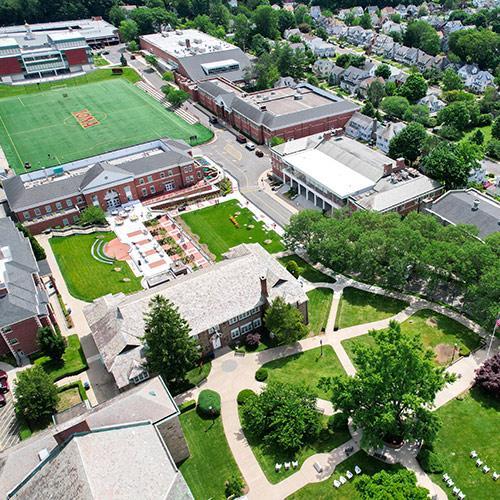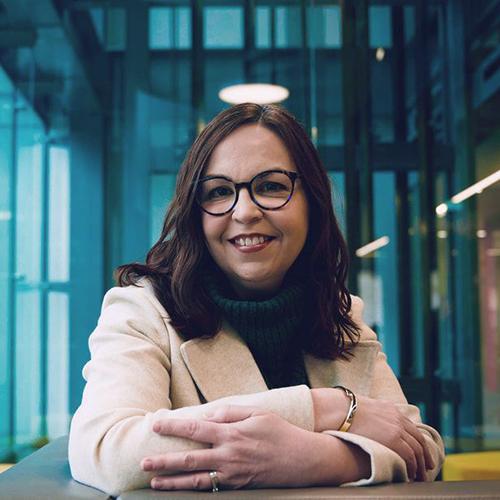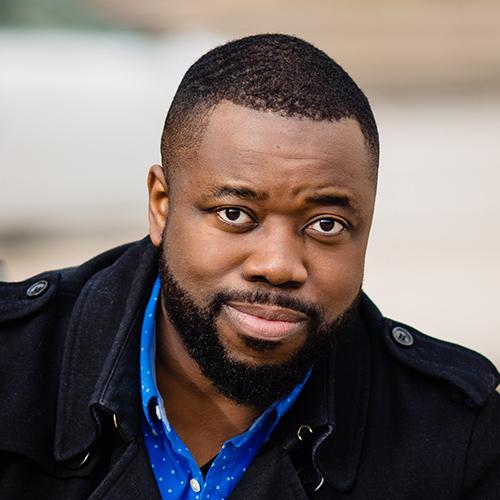How to Become a Speech-Language Pathologist
Why Become a Speech-Language Pathologist?
When you become a speech-language pathologist (SLP), you join a profession dedicated to helping those with communication and swallowing disorders.
Speech-language pathologists use their working knowledge of the neuroanatomical, physiological, cognitive and social aspects of speech and language to assess their clients’ specific needs, create and administer treatment plans and monitor progress.
By pursuing a career in speech-language pathology, you can make a lasting and positive impact on your clients and enjoy a rewarding career as an allied health professional.
What Does a Speech-Language Pathologist Do?
The primary responsibility of speech-language pathologists is to work with individuals with communication or swallowing disorders to improve or regain these abilities.
SLPs are well-versed in the acquisition and development of communication , the anatomy and physiology of the speech mechanism, evaluating and then administering treatment for communication and swallowing disorders.
Speech-language pathologists work in a variety of settings, such as schools, hospitals or in clinics with other allied health professionals such as physical therapists, occupational therapists, and audiologists, supporting people of all ages with their care. In general, speech-language pathologists have a variety of responsibilities, some of which include:
- assessing and diagnosing clients’ speech, language and swallowing disorders;
- improving clients’ vocabulary, fluency and sentence structure;
- training family members on how to provide at-home care;
- creating individualized treatment plans;
- testing new forms of treatment;
- collaborating with other health care and education professionals.
SLPs working in health care organizations may be deeply involved in rehabilitation for clients who have experienced neurological issues like a seizure or stroke, respiratory diseases and other medical conditions that impact a client’s swallowing, motor speech, memory or other communication skills. They provide acute care and play a critical role in helping clients regain essential functions.
As a speech pathologist in a school, you assess and identify students with communication disorders, support students’ Individualized Education Programs (IEPs), contribute to curriculum development, devise speech-language programs for the school and more.
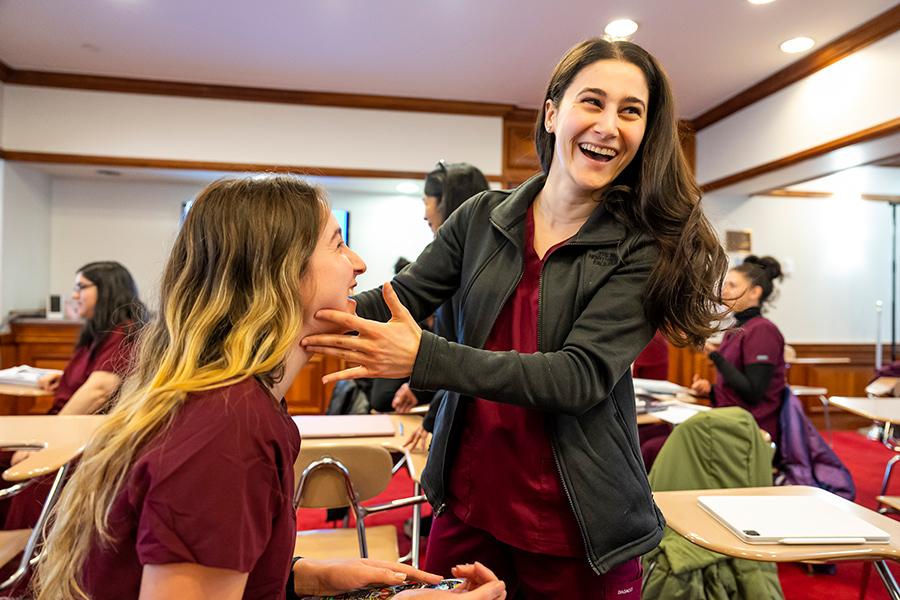
Necessary Skills for Speech-Language Pathologists
Speech-language pathologists must have strong communication and interpersonal skills. Because they work closely with individuals who struggle with hearing and communication disorders, SLPs have the responsibility to explain complex concepts and give clear instructions. Having strong communication skills like active listening, being mindful of nonverbal cues, giving constructive feedback and showing empathy are all critical to a successful practice as a speech-language pathologist.
As a speech-language pathologist, you encounter a variety of clients, all with unique needs. To ensure they receive quality care personalized to their abilities and goals, SLPs should be resourceful and creative. While there are core principles and best practices to improve motor, communication and cognitive abilities, each client may need a presentation or techniques tailored to them.
Working as a speech-language pathologist also requires strong collaboration skills. Whether you work in a health care setting or a school, as an SLP, your treatment of clients overlaps with social workers, physical therapists, occupational therapists, teachers, audiologists and others to ensure the client receives the holistic care they need.
In addition to treating clients directly, SLPs are responsible for maintaining accurate records, treatment plans and other forms of documentation. SLPs working in schools are responsible for creating and adhering to an IEP for each student. This requires SLPs to possess strong organizational skills to ensure their documentation is accurate, timely and confidential.
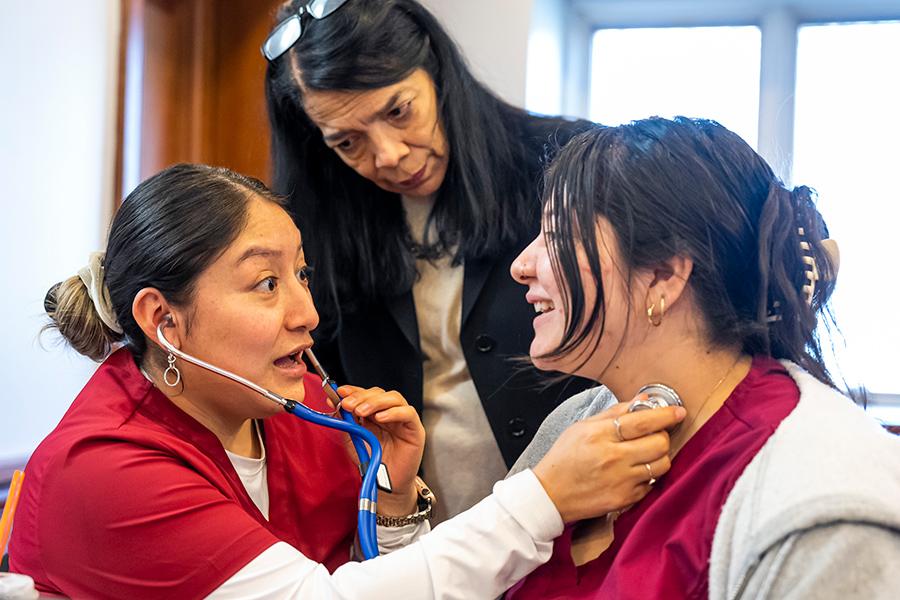
Requirements to Be a Speech-Language Pathologist
Due to the complexity of working with clients with communication and swallowing disorders that range in severity, becoming a speech-language pathologist requires advanced training and licensure. These specific education and certification processes ensure speech therapists are competent and well-prepared to support their clients.
Education Needed to Become a Speech-Language Pathologist
The base education requirement for speech-language pathologists is a master’s degree in speech-language pathology or communication sciences and disorders from a program accredited by the Council on Academic Accreditation in Audiology and Speech-Language Pathology (CAA).
Entrance into a graduate speech-language pathology program requires a bachelor’s degree. Those interested in becoming an SLP may benefit from earning an undergraduate degree in speech-language pathology and audiology, linguistics or another health-related major. These undergraduate degree majors often fulfill prerequisite courses in subjects like language development, phonetics or audiology needed to enter a speech-language pathology degree program, giving students the foundational knowledge they need to excel in their program.
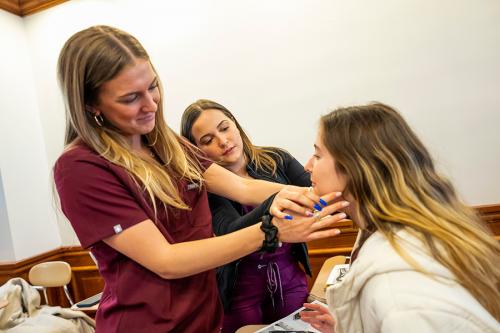
Speech-Language Pathologist Certification and Licensure
In every state, speech-language pathologists must be licensed to practice. The specific certification requirements vary by state and type of facility, such as a school, which may require a speech-language pathologist to earn a teaching certificate.
The American Speech-Language-Hearing Association (ASHA) offers the Certificate of Clinical Competence in Speech-Language Pathology (CCC-SLP). To obtain your CCC-SLP certification, you must:
-
graduate from a CAA-accredited master’s program;
-
take and pass the Praxis exam in Speech-Language Pathology;
-
apply for your CCC-SLP certificate;
-
complete a clinical fellowship experience totaling at least 36 weeks and 1,260 hours;
-
add clinical fellowship into certification applications.
When your application and documentation are received, the review process may last up to six weeks. Once approved, you are CCC-SLP certified. CCC-SLP certification may fulfill or partially fulfill state licensure requirements.
To learn more about the state-specific speech-language pathologist certification requirements, visit ASHA’s state–by–state list, which provides a comprehensive overview of how to obtain proper licensure and certification for U.S. states and territories.
SLP Career Outlook
The U.S. Bureau of Labor Statistics (BLS) projects speech-language pathologist employment to grow 21 percent over the next decade, translating into an estimated 14,000 job openings per year. The BLS attributes this projection to a large segment of the population that is growing older and may suffer health conditions that require a speech pathologist’s help to regain speech and to a broader awareness of speech and language disorders.
On average, speech-language pathologists' annual salary is $79,060. Their earning potential can range from $51,310 to $125,560, depending on what type of facility where they work, including in nursing homes, hospitals, educational services or audiologist and physical therapist offices.
Earn Your Master of Arts in Communication Sciences and Disorders at Iona
Iona University offers a Master of Arts in Communication Sciences and Disorders (CSD) degree, training students in the fundamental processes of speech, language and hearing and equipping them to diagnose and treat those with communication and swallowing disorders.
To provide graduate students with a foundational understanding of the speech-language pathology field, the CSD master’s curriculum includes courses in anatomy and physiology, language development and disorders in children, research methodologies and evaluation strategies. Each semester, students also participate in clinical practicum at Iona’s Speech, Language and Hearing Clinic, where they gain first-hand experience providing a broad range of treatments and services.
The program curriculum prepares students for the Certificate of Clinical Competence in Speech-Language Pathology (CCC-SLP). Additionally, upon degree completion, students are eligible to apply for state licensure through the New York State Department of Education’s Office of the Professions.
The Master of Arts (MA) education program in Speech-Language Pathology residential at Iona University is accredited by the Council on Academic Accreditation in Audiology and Speech-Language Pathology (CAA) of the American Speech-Language-Hearing Association, 2200 Research Boulevard #301, Rockville, Maryland, (800) 498-2071 or (301) 296-5700.
Any questions or complaints regarding the program’s accreditation status or compliance with accreditation standards may be directed to the Council on Academic Accreditation in Audiology and Speech-Language Pathology (CAA).
Begin Your Journey to Becoming a Speech Language Pathologist
As a speech-language pathologist, you can support those with communicative disorders by providing quality care and treatment that helps improve their swallowing, speaking and communication abilities.
At Iona, you receive the comprehensive training and experiential education you need to succeed as a speech-language pathologist working with a diverse range of clients.
Take the next step to becoming a speech-language pathologist and start your Master of Arts in Communication Sciences and Disorders application today.
Find out What an Iona Education can do for you
Visit Campus
Our scenic campuses, located just 20 miles from midtown Manhattan, truly do offer the best of both worlds.
Let us show you around, answer your questions and give you a feel of our tight-knit community.
Apply Today
If you're considering applying to Iona, you're not alone! Since 2019, our new-student enrollment is up nearly 40%. Graduate students automatically qualify for consideration of merit scholarships during their graduate programs. Start your application today.
Request More Information
Learn more about Iona University today!
